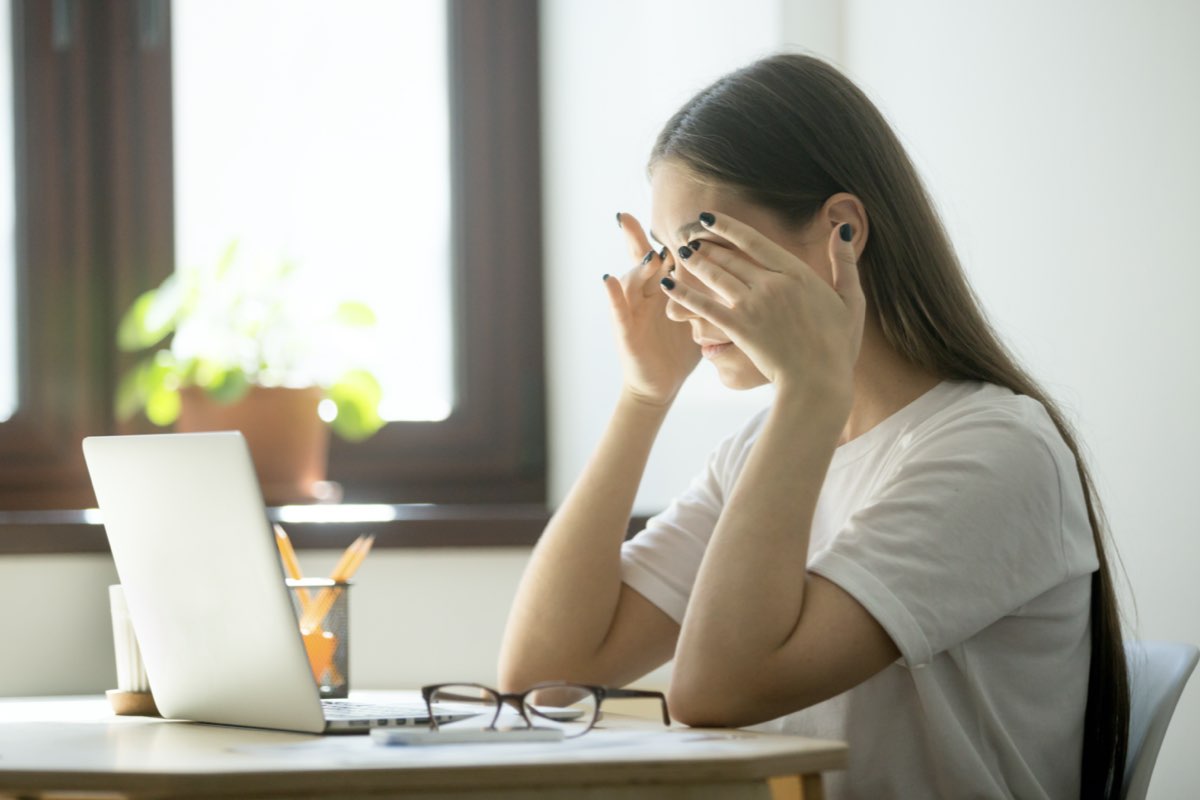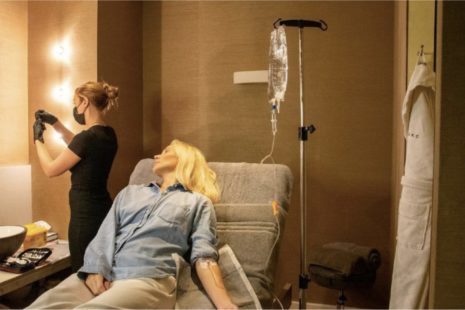Blue light is all around us and it’s needed for good health. However, too much can be harmful to our eyes, skin and sleep cycle. Here we examine the effects of blue light on the body…
What is blue light?
Blue light is a type of light in the visible light spectrum that produces high amounts of energy. Sunlight is the main source of blue light and it’s the reason why the sky is blue as molecules in the air scatter blue light from the sun. There are also artificial sources, such as TVs, laptops, smartphones and certain types of lighting.
How does it affect sleep?
Blue light regulates the body’s circadian rhythm (natural sleep-wake cycle) and it’s needed for good health. Exposure to blue light in the daytime is important as it can boost our mood, alertness and energy levels. However, too much of it at night can keep us awake.
“It is thought that blue light, when detected by the eye, signals the pineal gland to suppress the secretion of the hormone melatonin,” says colour therapist Alison Standish, who’s working with LG on their Light House campaign. “Melatonin regulates your circadian rhythms and without it, you remain alert and awake therefore disrupting your wake-sleep cycle.”
How does it affect eye health?
Our eyes have trouble blocking blue light and because it scatters more it makes it harder to focus. You may therefore experience eye strain and headaches, such as when working at your computer all day. In addition, there are growing concerns it could cause long-term problems to our eye health.
“Human eyes have receptors that contain a photopigment called melanopsin that is sensitive to blue light,” says Alison. “Research has suggested that too much blue light can increase the risk of macular degeneration (an eye disease that can blur vision) as the blue light penetrates the retina which can damage light-sensitive cells.”

How does it affect skin?
Did you know your computer screen might be ageing you? While research is still in the early stages, some evidence suggests blue light could have damaging effects on the skin.
“Repeated and long-term exposure to High Energy Visible (HEV) blue light has been associated with unstable atoms in the skin called free radicals, which damage important proteins in the skin including collagen and elastin,” explains consultant dermatologist Dr. Sharon Wong. “This leads to sagging skin, wrinkles and premature ageing. These free radicals can also cause inflammation in the skin and lead to darker spots called hyperpigmentation.”
She advises wearing a sunscreen of minimum SPF 30 daily and even indoors when working from home. “Standard sunscreens protect from UVA and B rather than visible light, so I would generally recommend a physical/mineral sunscreen. This reflects the light off the skin rather than chemical sunscreens that absorb the UV rays to prevent them damaging the skin.”
How to cut down on blue light
– Wear blue light blocking glasses when using devices
– Take regular screen breaks
– Leave electronic gadgets in the living area at night
– Avoid LED bulbs in the bedroom as they tend to use blue light
Main image: Shutterstock
Get your weekly DOSE fix here: SIGN UP FOR OUR NEWSLETTER
















